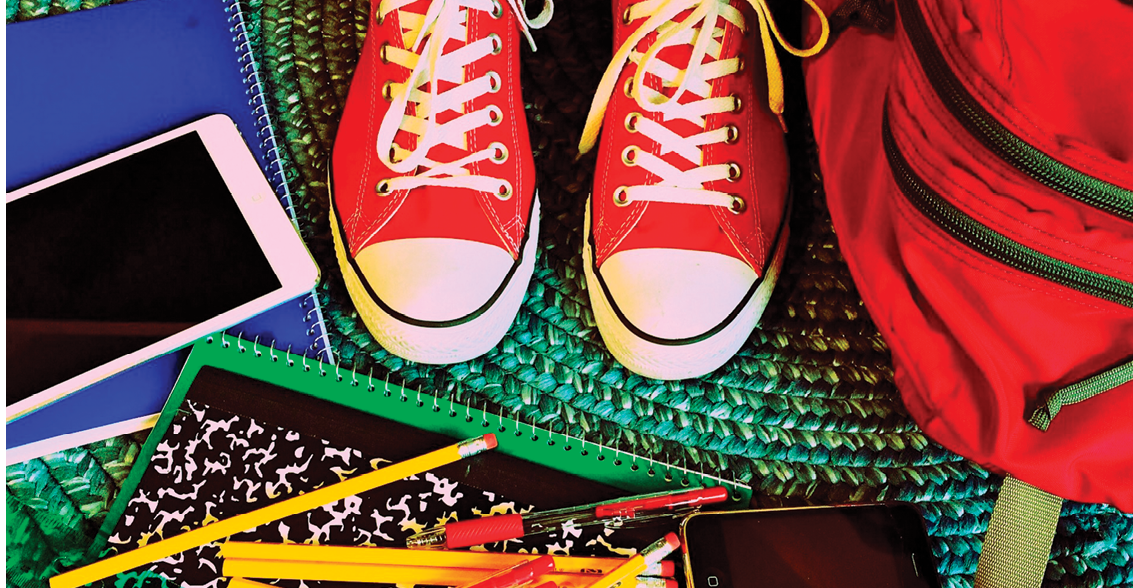Keeping Your Middle Schooler Organized

When Rachel Pheffer's son Brock starts middle school this fall, teachers will expect him and his classmates to manage homework, school supplies and activities without the same oversight they experienced in elementary school. Set your tween up for success in a way that supports his growing independence.
Free Digital
Organization Apps
MyHomework
Digital student
planner
(iOS or Android)
inClass (iOS) or
Studious (Android)
Multimedia note-taking, file-sharing, to-do list management and schedule planner
Freedom
(PC or Mac)
Blocks distracting websites, mail servers, social media during homework time
“This is the time to let go and hope that I've taught him how to stay organized,” says Rachel.
Of course, she'll still offer guidance as Brock chooses organizational systems and colorful supplies that motivate him – all while staying on budget.
“The dollar store is my favorite place. They have tons of bins and organizational things that you can buy and not bust your bank,” Rachel says.
Why get organized? Organization is a learned and essential life skill. Mismanaged materials result in needless stress, time wasted tracking down lost items and poor grades.
“When kids get into the habit of organizing, they're developing valuable planning and critical-thinking skills that will help them become better problem solvers and creative thinkers,” says professional organizer Shawna Childers.
Remember homework. Writing to-do lists and filling out assignment pads helps kids keep track of homework. If teachers permit, your tween might also snap photos of assignments posted on the board with her phone.
Mikita Burton, a mom of three, lifestyle blogger and professional organizer, took advantage of technology to help her son remember homework materials.
“Most teachers now have 'web backpacks' where parents can also see the assignment. I used the technology that our kids are now accustomed to and added assignments to his cell phone,” she says. “I set reminders and they would ping five minutes after the dismissal bell in hopes that by the time he got to his locker, he'd be reminded of the assignment and bring the correct book home.”
Accessorize their locker. Prevent a locker from becoming a jumble of books, smashed papers and supplies.
“A locker shelf should be your first purchase,” Mikita advises.
Discount stores sell baskets that can be flipped on the side to create an inexpensive locker shelf or purchase a shelf at area office supply stores. Hang magnetic baskets on the locker's inside door to house extra pens and pencils. Kids generally love choosing personalized accessories to customize their temporary space.
“Fun decorations on the inside encourage kids to keep it clean,” Mikita says.
Choose a calendar. Between school, extracurricular activities and a budding social life, busy middle schoolers can get overwhelmed. Select a cool calendar with your tween that she can fill out each week to help her visualize and prioritize her time.
Manage backpacks. Simplify filing and retrieving of materials stashed in backpacks with color-coordinated folders and notebooks for each school subject. Get your child in the habit of cleaning out his backpack weekly to manage the balled-up papers, broken pencils and other trash that inevitably collect.
Toss clutter. “A great way to stay organized for the entire school year is to do a quarterly re-organize of their binders, notebooks and folders,” Shawna says. “It works well to do this 'clean out and refresh' after each report card.”
Create a homework station. Together, design and organize a functional, distraction-free homework space and stock it with necessary supplies.
“Every kid should have what I call a landing station – a place in their room or common area to land all of their stuff,” Mikita says.
Each afternoon, Mikita’s son stows his backpack in a large round plastic tub on the floor. He files paperwork that needs to be signed or reviewed by his mom in a hanging file folder box positioned above the tub. A small night stand holds his school-issued laptop and serves as a charging station.
Encourage independence. As long as her son completes his work and earns good grades, Rachel says she's comfortable with whatever kind of organization system he implements. Late assignments and poor grades will mean more oversight from mom, which typically doesn't excite an independence-driven middle schooler.
“Letting your child fail a bit is hard as a parent, but I've found sometimes that's what we need to do to help them learn,” she says.









